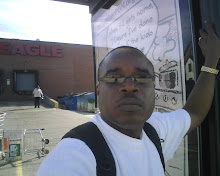Here is another emergency issue that gets hidden in the data and which treats 15-18 year olds as adults preventing us from seeing the true picture. What should we call this one - The Hidden Faces of Disaster? Children are dependents, children can't vote, children are not breadwinners. Is this why we take them for granted. HIV/AIDS and the stigma it presents are real issues for children who are inflicted with the disease through no fault of theirs. Many of them have and will lose their parents, their Friends and sometimes their teachers. They are often ostracised and many are not in situations to articulate their hurt and pain or the alienation from which they suffer. Many of us think the last twenty years have changed us. Has it?
I am writing a paper, publishable, I hope. My professor believes I should think of it, seriously. Its about Education and HIV/AIDS in Nicaragua and Costa Rica. The purpose is to identify the impact of the disease on the education system in Nicaragua and Costa Rica as comparatives.
I am discovering that the education related data just isn't there. Where it is, it is hidden in data on adult. Little is said about the children - inflicted or orphaned. The data presented is mostly about women, gathered from testing them during pregnancy and feminizing the disease in the process. If this is when they are tested and it forms the major data source, what happened to the babies? Did they get the disease? Were they treated in time to protect them? Were the therapies even available? If they were could the parents afford them or were they free? This is were poverty and HIV/AIDS become a deadly mix. To know it is available yet inaccessible is the hallmark of being poor. Its like higher education for minorities. Not being able to protect the next generation from disease and death, often not of their own making is indictable and everything we learnt about sustainability goes out with the baby bath.
The chilling tales of street children and HIV/AIDS in some of these third world cities are still waiting to be told. Maybe, just maybe if children could vote or work; if only they had a voice; if only they we not so vulnerable, we would think twice about their welfare and how our follies affect them and their education. Education may be for many their only hope for a "voice"
Monday, March 31, 2008
Subscribe to:
Post Comments (Atom)

No comments:
Post a Comment